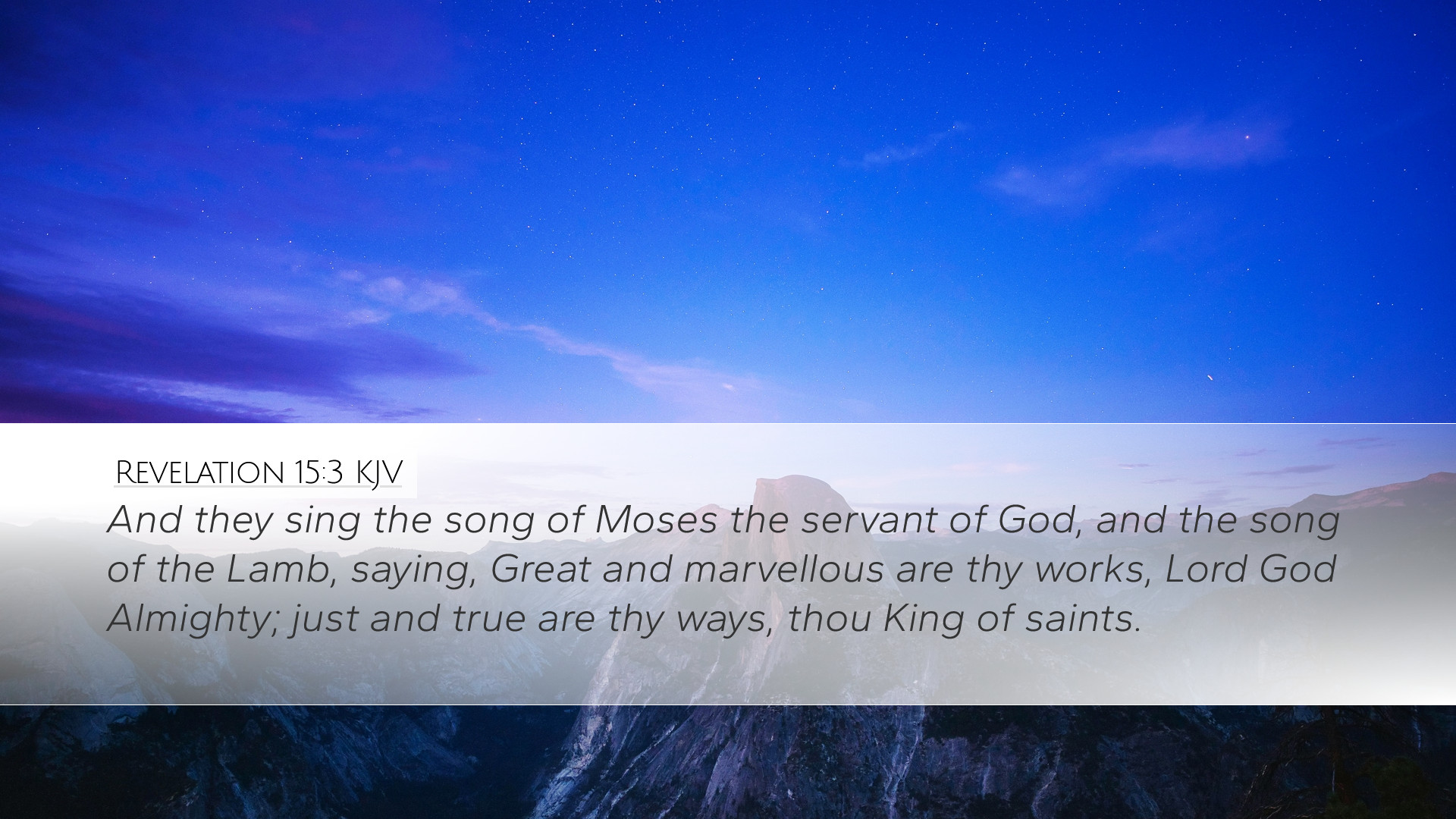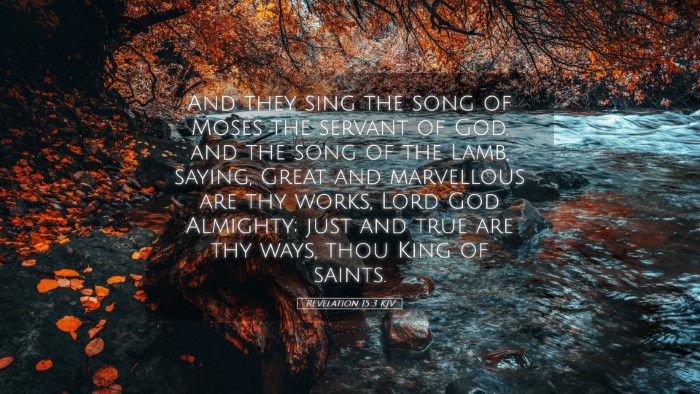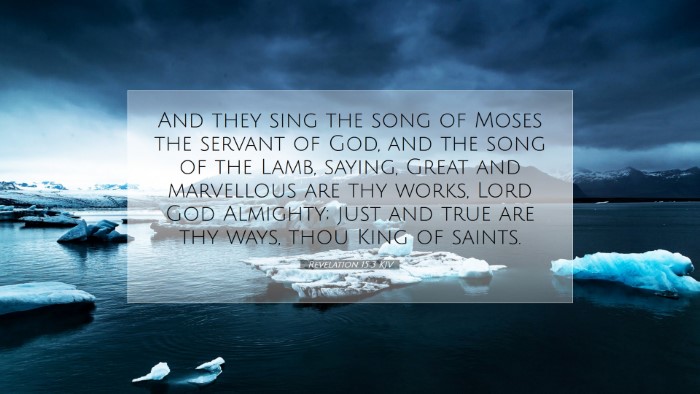Bible Commentary on Revelation 15:3
Verse: "And they sing the song of Moses the servant of God, and the song of the Lamb, saying, Great and marvellous are thy works, Lord God Almighty; just and true are thy ways, thou King of saints."
Introduction
The verse from Revelation 15:3 serves as a powerful declaration of worship and praise to God, encapsulating themes of divine justice, magnificence, and sovereignty. The imagery presented here invites deeper exploration into the significance of worship and its implications within the eschatological framework of Revelation. Such commentary draws from the teachings of renowned public domain scholars including Matthew Henry, Albert Barnes, and Adam Clarke, offering a holistic perspective that holds profound meaning for pastors, theologians, and students of the Bible.
Contextual Background
The Book of Revelation, authored by the Apostle John, is a prophetic work that reveals the ultimate victory of God over the forces of evil. Chapter 15, where this verse is found, depicts a heavenly scene of worship that occurs just before the pouring out of the seven last plagues. This event reflects both the culmination of human history and the righteous judgment of God upon the earth, making the declaration of praise in this verse all the more significant.
The Song of Moses
Henry notes that the "song of Moses" refers to the song sung by the Israelites after their deliverance from Egypt (Exodus 15:1-19). This ancient hymn celebrates God’s power and faithfulness in delivering His people and serves as a foundation for understanding God's character and actions. It poignantly contrasts God's majestic works with the fleeting nature of earthly powers, affirming that ultimate deliverance comes from God alone.
The Song of the Lamb
Alongside the song of Moses, the "song of the Lamb" embodies the fulfillment of redemption through Christ's atoning work. Barnes elucidates that this song acknowledges the redemption brought about by Jesus, whose sacrifice secures salvation for those who believe. This duality of songs represents both the Old Testament foretelling and the New Testament fulfillment of God's plan, remaining central to the hearts of believers.
Theological Reflections
Revelation 15:3 presents a profound expression of worship that carries multiple layers of meaning.
- The Splendor of God's Works: The phrase "Great and marvellous are thy works" encapsulates the awe-inspiring nature of God's deeds. Clarke emphasizes that all creation, historical events, and miracles reveal God's glory and majesty. Such acknowledgment invites believers to reflect on both God's past acts and His ongoing work in the world today.
- Justice and Truth: The acknowledgment that God's ways are "just and true" serves as a profound reminder of His righteousness. In the face of worldly injustices, this truth offers solace and hope to believers, assuring them that God will eventually enact perfect justice. This assurance is particularly significant in light of the persecution faced by early Christians, as seen through the lens of Revelation’s narrative.
- The Sovereignty of God: By referring to God as "King of saints," the verse asserts His sovereignty over not only the cosmos but also His people. This title highlights God's lordship and invites believers to live under His kingship, emphasizing allegiance to His ways and commands. Such living is essential for the faithful in contemporary society, aligning with the call of discipleship.
The Role of Worship
The act of singing is intricately linked to the essence of worship in the Christian faith. Henry notes that worship is not merely a routine activity but a heartfelt response to God's majesty. It is important for pastors and church leaders to teach congregations the significance of singing in worship, as it serves both a communal and personal function, fostering unity among believers and deepening individual devotion.
Application for Today’s Believers
The lessons drawn from Revelation 15:3 are timeless, urging modern believers to cultivate a vibrant life of worship. In practice, this can manifest in various forms:
- Community Worship: Believers are encouraged to gather regularly for worship, embodying the reality that singing the praises of God is best expressed in community.
- Personal Reflection: Individual worship times, where believers meditate on God's works and faithfulness, can enhance understanding and appreciation of His justice and truth.
- Vocal Witness: Sharing testimonies of God's goodness and marvellous works serves to encourage and uplift others, creating a culture of praise and thanksgiving.
Conclusion
Revelation 15:3 embodies the heart of Christian worship: an acknowledgment of God’s greatness, justice, and sovereign rule. Drawing insights from foundational commentary, we can better understand both its historical context and practical applications for our faith today. As we unite in praise, echoing the sentiments expressed in this verse, we affirm God's ultimate authority and express our hope in Christ's redemptive work.


